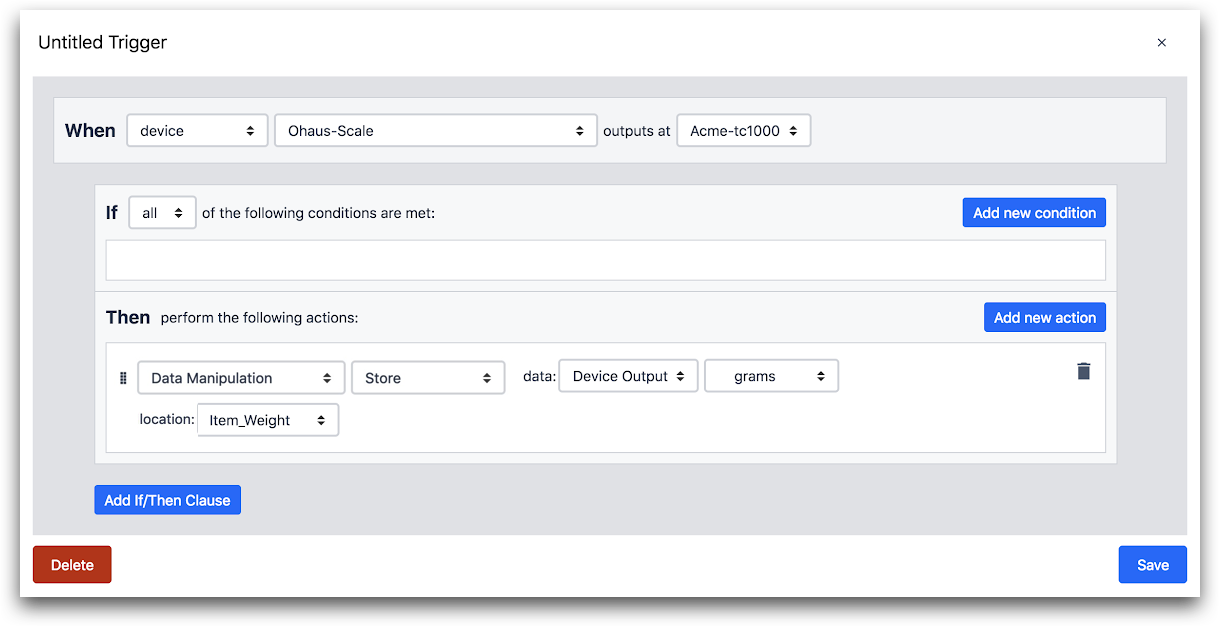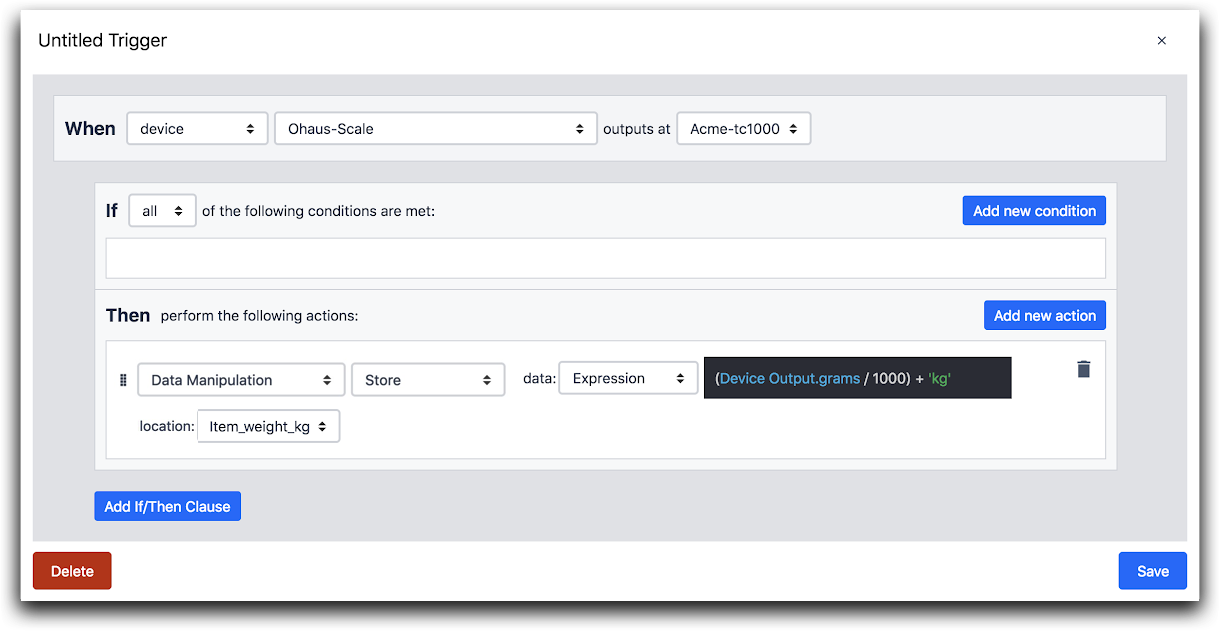How to Add an Ohaus Scale and Store Output in a Variable
Ohaus Scales are also available in Player as of r318. You will need to enable the driver on the interface that you are using, otherwise the app will default to utilize the driver on Edge Devices.
Here's how to use an Ohaus scale in Tulip.
There are two ways to set up triggers based around the Ohaus scale.
- By change in grams
- By change in pieces
You should configure your scale to one of these settings before creating a trigger in Tulip.
Both start with the following steps:
1- From the App Editor, select the desired Step within the desired app.
2- Select the plus icon in the side pane next to Triggers.
3- Name the trigger by clicking the title in the Trigger Editor.
4- Set the Event:
- Select “device” in the dropdown menu
- Select “Ohaus-Scale” in the second dropdown menu
- Select “this station” in the third dropdown menu
Then, change your "When" statement based on the settings of the scale.
Change In Weight
- Select "Weight" in the fourth dropdown

Change In Pieces
- Select "Pieces" in the fourth dropdown

All Settings
5- Condition - do not add a Condition
6- Set an Action:
- Click the plus icon in the right side of the Actions row.
- Select "Data Manipulation" in the dropdown menu
- Select "Store"
- Select "Device Output"
- Select data output type as oz. This field varies by data output type.
- Select New Variable in the variable dropdown menu and name new variable “Item_Weight”

In the example shown above, the weight measured by the Ohaus scale will be saved within the variable, Item_Weight.
We could go a step further and perform a calculation on the weight measured by the scale, using the Expression functionality and save it the resulting value in a variable as well.

